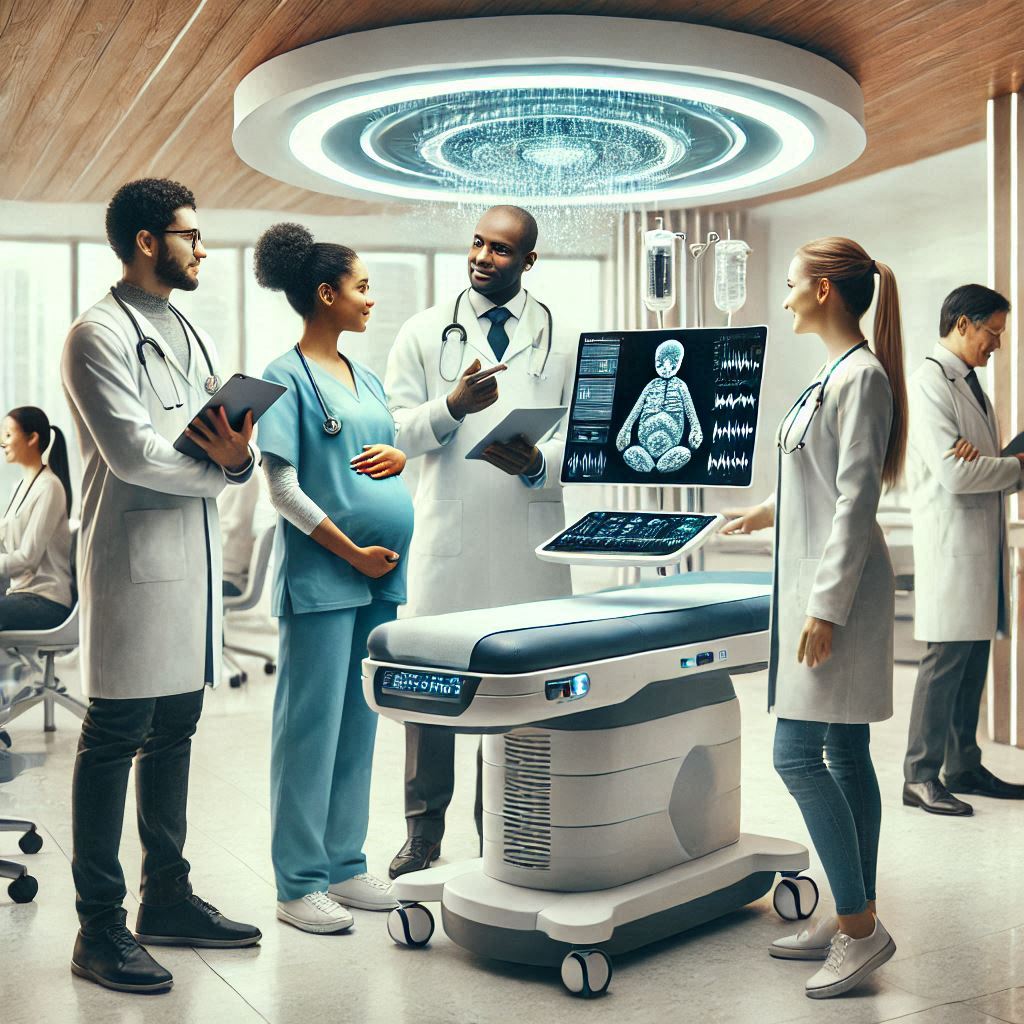Artificial intelligence (AI) is rapidly transforming healthcare, with the potential to revolutionize everything from diagnostics and treatment planning to drug discovery and patient monitoring [1, 2, 3, 5]. As AI technologies become more sophisticated, a crucial question arises: Will AI replace doctors and other healthcare professionals? While some may fear a future where machines render human expertise obsolete, the prevailing view among experts is that AI will serve as a powerful tool for augmentation, not replacement, enhancing the capabilities of healthcare professionals and enabling them to provide better, more efficient, and more personalized care [1, 3, 5, 8].
The Complementary Strengths of Doctors and AI
The most promising vision for the future involves a synergistic partnership between doctors and AI, leveraging the unique strengths of each [1, 3, 5, 8]. AI excels at tasks that require processing large amounts of data, identifying patterns, and making predictions with speed and accuracy [1, 2, 3, 5]. Doctors, on the other hand, bring to the table essential human qualities such as empathy, critical thinking, complex problem-solving skills, and the ability to build trust and rapport with patients[3].
AI’s Key Strengths in Healthcare:
- Data Analysis and Pattern Recognition: AI can sift through vast datasets of medical images, genomic information, patient records, and research literature to identify subtle patterns and insights that might be missed by human clinicians [1, 2, 3].
- Automation of Repetitive Tasks: AI can automate time-consuming and repetitive tasks, such as scheduling appointments, processing insurance claims, and documenting patient visits, freeing up clinicians to focus on more complex and critical aspects of patient care[1].
- Personalized Treatment Recommendations: AI can analyze individual patient characteristics, treatment histories, and genetic information to generate personalized treatment recommendations, optimizing the selection of medications, therapies, and interventions [1, 3].
- Predictive Analytics: AI can analyze patient data to identify individuals at risk of developing complications or experiencing health crises, enabling proactive interventions and preventive care [1, 3].
Doctors’ Irreplaceable Skills and Qualities:
- Empathy and Communication: Doctors can connect with patients on a human level, providing emotional support, listening to their concerns, and building trust.
- Critical Thinking and Complex Problem Solving: Doctors can integrate diverse sources of information, consider the nuances of individual cases, and make complex decisions in situations where AI algorithms may fall short.
- Ethical and Moral Reasoning: Doctors can navigate complex ethical dilemmas and make value judgments that require human compassion and understanding.
- Clinical Intuition and Experience: Doctors can draw upon years of experience and accumulated clinical knowledge to make informed decisions, even in situations where data is incomplete or ambiguous.
The Doctor-AI Partnership in Action: Real-World Examples
The doctor-AI partnership is already transforming healthcare in several key areas:
- AI-Assisted Diagnostics: AI algorithms are helping radiologists to detect subtle anomalies in medical images, such as lung nodules or breast tumors, improving the accuracy and efficiency of cancer screening [2, 3].
- AI-Powered Treatment Planning: AI systems are assisting oncologists in developing personalized treatment plans for cancer patients, optimizing the selection of chemotherapy regimens, radiation therapy techniques, and surgical approaches [1, 3].
- AI in Robotic Surgery: Robots are becoming increasingly sophisticated surgical tools, extending physicians’ reach, improving precision, and minimizing invasiveness[6].
- AI-Driven Virtual Assistants: Virtual assistants and chatbots are providing patients with 24/7 access to medical information, answering questions, and offering personalized guidance, freeing up doctors to focus on more complex cases[3].
- AI with Diagnostic Skills: AI-based system is used to diagnose patients where physicians can receive specific recommendations about patient care and update patient documents automatically to reduce physician burnout [2, 3].
Preparing for the Future: Key Considerations
To ensure a successful doctor-AI partnership, several key considerations must be addressed:
- Training and Education: Healthcare professionals need to be trained in the use of AI tools and educated about their capabilities and limitations.
- Data Security and Privacy: Robust safeguards are needed to protect patient data from unauthorized access and misuse.
- Algorithmic Transparency and Explainability: Efforts are needed to develop AI algorithms that are transparent and explainable, allowing clinicians to understand the reasoning behind their recommendations[3].
- Ethical Guidelines and Regulatory Frameworks: Clear ethical guidelines and regulatory frameworks are needed to ensure the safe, responsible, and equitable use of AI in healthcare.
- Health AI Partnership is focused on helping healthcare organizations evaluate and implement AI[4].
Conclusion: Augmenting Human Expertise for Better Healthcare
AI is not poised to replace doctors, but rather to augment their capabilities and enable them to provide better, more efficient, and more personalized care [1, 3, 5, 8]. By embracing the power of AI and fostering a collaborative partnership between humans and machines, we can unlock a new era of healthcare innovation, improving patient outcomes and transforming the delivery of medical care. The future of healthcare lies in the synergy between the human touch of compassionate doctors and the analytical prowess of intelligent machines.
References[1] https://pmc.ncbi.nlm.nih.gov/articles/PMC8285156/[2] https://builtin.com/artificial-intelligence/artificial-intelligence-healthcare[3] https://kids.frontiersin.org/articles/10.3389/frym.2023.1297688[4] https://mcpress.mayoclinic.org/healthy-aging/ai-in-healthcare-the-future-of-patient-care-and-health-management/[5] https://medicalfuturist.com/10-things-you-can-definitely-expect-from-the-future-of-healthcare-ai/[6] https://tatamd.com/the-future-of-ai-in-healthcare/[7] https://www.iqvia.com/blogs/2024/02/the-future-of-ai-in-healthcare[8] https://health.google/health-research/
Citations:
[1] https://pmc.ncbi.nlm.nih.gov/articles/PMC8285156/
[2] https://builtin.com/artificial-intelligence/artificial-intelligence-healthcare
[3] https://kids.frontiersin.org/articles/10.3389/frym.2023.1297688
[4] https://mcpress.mayoclinic.org/healthy-aging/ai-in-healthcare-the-future-of-patient-care-and-health-management/
[5] https://medicalfuturist.com/10-things-you-can-definitely-expect-from-the-future-of-healthcare-ai/
[6] https://tatamd.com/the-future-of-ai-in-healthcare/
[7] https://www.iqvia.com/blogs/2024/02/the-future-of-ai-in-healthcare
[8] https://health.google/health-research/
